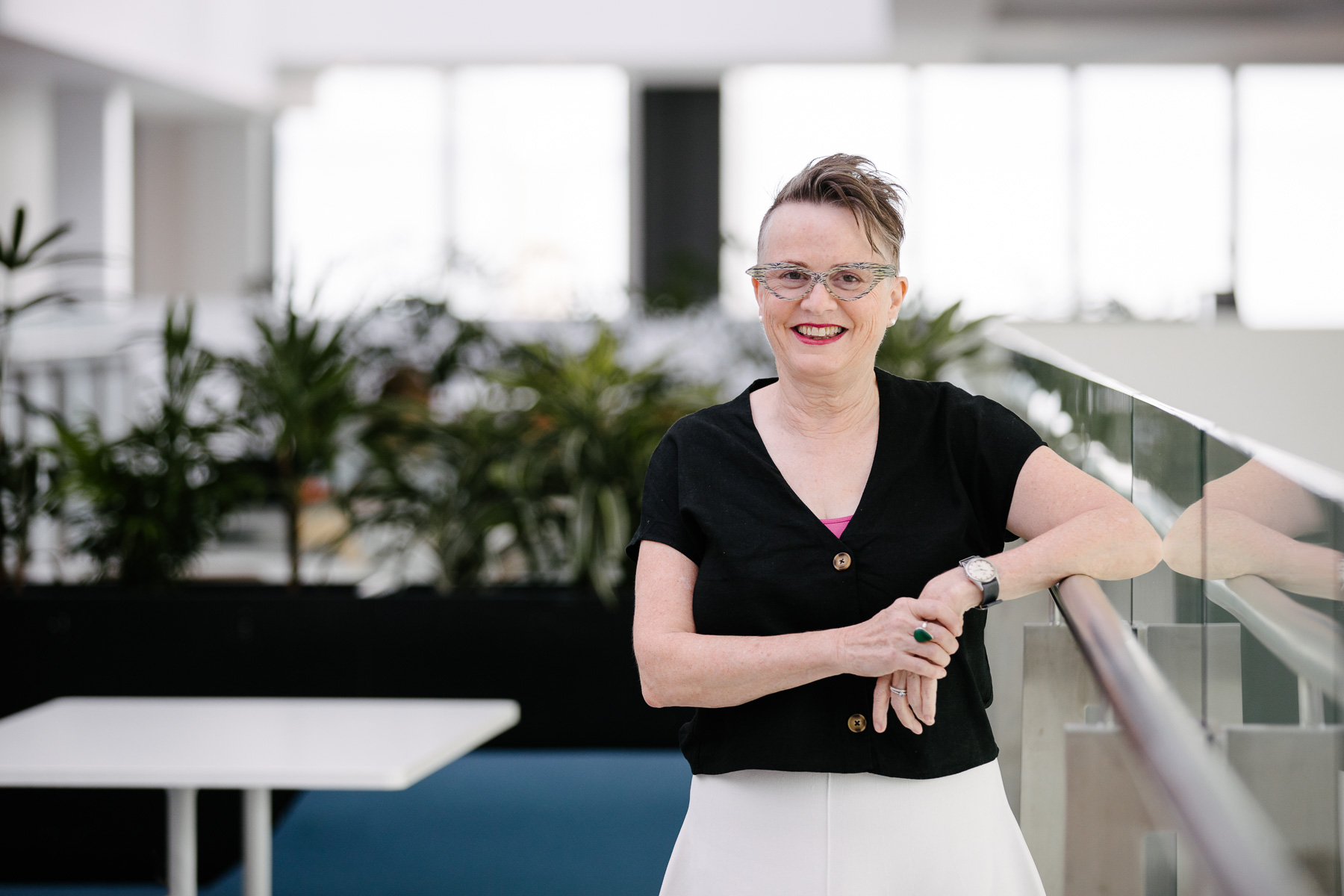
Associate Professor Lorna Hallahan marks International Day of People with Disability
It’s time to retire our slogan: ’Nothing about us without us.’
Innovation requires destruction. As well as creation. Economists Joshua Gans and Andrew Leigh (also a Federal Government Minister) focus on these countervailing forces in their work aimed at pursuing innovation that guarantees equality and social development while not simply reproducing existing inequalities. Over the three decades from 1992 when the United Nations designated 3 December International Day of People with Disability the annual themes have repeatedly called for the removal of barriers to full inclusion. The themes are, however, integrated around a unifying future-focussed theme of inclusion, rights, equality and justice. We must surely ask: ‘why, after all this time, are we still making such demands?’
The other side of this seemingly natural struggle for acceptance and inclusion holds that those with disability are awkward even troublesome, confronting, worthy of strategies to expel us to out-of-sight places, in congregated services, special schools, sheltered employment or community-based isolation. In health and human services, we are seldom accepted as the manager or colleague, nearly always the patient/client/consumer. This is disability world. This is the world that is ‘about us’: about impairment, disability and being serviced. It requires our constant vigilance and work for change but no matter how much we are brought into conversations about us we will not kick open the door to full inclusion. Participation in decisions about services and in co-design processes is a start but it is woefully inadequate goal for the transformation required to fuel an accessible and equitable world.
Participation as co-researchers in disability research is likewise a starting point, worthy of celebration, but still not enough. First, most research about disability is about services. This can perpetuate a view that the only things we should speak about are those things which relate to the disability world. Next, inclusive strategies in disability research can become focussed on relationships with individuals rather than translating the knowledge critiquing and building processes alive within the Disability Movement, working toward demands that are undiminished by a history of low expectations. It is heartening to see that the principles of the emerging National Disability Research Partnership (NDRP) strive to value all forms of knowledge, including the refined, politicised voices from Disabled People’s Organisations. Finally, a focus on the research question is crucial if we are to unlock pathways to genuine change.
Spot the difference: ‘How can we ensure that people with cognitive impairments practice good dental hygiene?’ and ‘What do we, as disabled people, interpret from the data about material inequality in Australia and where lie the opportunities for policy input?’ Both enquiries are important and worthy of investigation. The second, however, has the potential to maintain a focus on dismantling the structures and mechanisms of exclusion; not only for disabled people but to contribute to wider social and economic change. The second is also unlikely to be called ‘disability research.’ It is, however, closely related to Australia’s Disability Strategy 2021-2031. Its seven outcome areas focus on one related only to disability world (personal and community support). All others point to change in a wider world although some carry the risk of developing segregated options within so-called mainstream systems (health, housing and justice). Integral to the success of the strategy are the aims in Improving the data and Building the Evidence Base. Here we read of goals for data and research related to advancing the vision: An inclusive Australian society that ensures people with disability can fulfil their potential, as equal members of the community. The challenge remains: ‘how do we maintain a focus on this wider goal without defaulting to a persistent view that disabled people can only speak authoritatively of their needs in disability world?’
Kurt Lewin’s 1951 forcefield analysis gives us a simple starting point to see how innovation in the knowledge critiquing and building that fuels change to an inclusive and equitable world needs to address and destabilise the restraining forces that support the status quo. We need to expose those vested interests (however close to home) that use marketing tools to rename segregation as participation and propagate the myth that disability world is where we should be. There is money, power and prestige in maintaining the status quo, for service providers and researchers alike. We also need to name the wider complacency that says, ‘I owe no duty to my disabled neighbour other than that which uses my taxes for services.’ Until services step back into genuine support and no longer muscle forward to claim all the resources and recognition, the ambivalence historically shown toward disabled Australians will remain. We can no longer give voice and influence to researchers who do not heed the message that rights and needs cannot be met by repeating the eugenic errors of our past. This process of cripping – naming and reducing the expulsive forces – is as necessary as potentiating the driving forces for positive change.
Building agreement and action around necessary steps toward inclusion and equality requires a wide horizon, what the US social workers call a Grand Challenge. The theme of the 2022 International Day points to it: inclusive development for an accessible and equitable world. We cannot have equality by solely focussing on disability world. Indeed, we must resist its normalisation of exclusion, segregation and isolation. Nor can we have equality by excluding disabled people as movement activists, knowledge critics and builders in all areas of social and economic development. Let’s start by moving the oversight for Australia’s Disability Strategy 2021-2031 from the Department of Social Services to the Department of Prime Minister and Cabinet with its capacity to integrate planning and monitoring all of government, community and business activities. As social workers we can also design our Australian Grand Challenges. I invite you to explore this with me.
So, if inclusion and equality are both our aim and our process, our new slogan, must be: Nothing without us. Everything with us.

